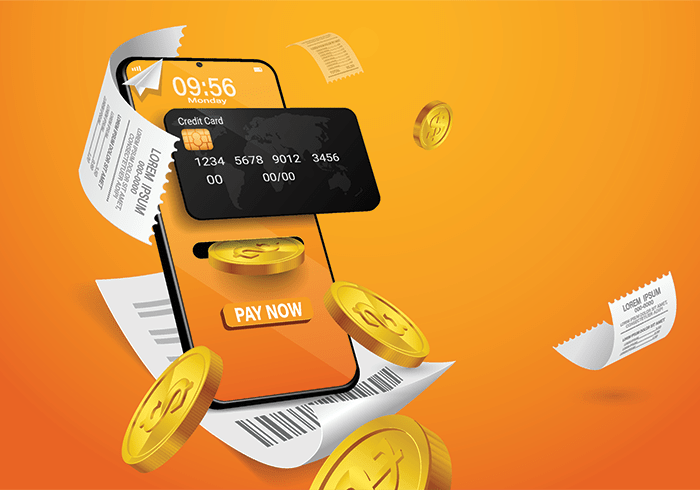WHAT IS A DIGITAL WALLET?

By Chandler Sullivan
June 19, 2023 | 3 Min. Read

By Chandler Sullivan
June 19, 2023 | 3 Min. Read
In today’s fast-paced digital world, carrying around a physical wallet filled with multiple cards seems outdated. Although most people still use physical cards and wallets, digital wallets may be the new way to pay.
The creation of digital wallets has revolutionized the way we make payments, providing a secure and convenient alternative to traditional payment methods. In this blog, we will explore the world of digital wallets.
Digital wallets, also known as mobile wallets or e-wallets, are applications that store virtual representations of your debit or credit cards, allowing you to make purchases using your smartphone or other compatible devices.
These wallets use near-field communication (NFC) technology, enabling a wireless connection between your device and the payment terminal. When making a payment, the wallet securely transmits encrypted payment data to the terminal, completing the transaction.
If you are an Apple user, their built-in digital wallet application simply called the “wallet” app holds and stores digital cards and payment options, as well as, tickets and other widget accessible information.If you are an android user, their digital wallet is called Google wallet. If you are a Samsung user, their digital wallet compatibility is Samsung wallet.
Security is a prime concern when it comes to digital wallets. It may surprise you to hear, the digital wallet you have in your phone is often safer to use than your traditional debit or credit card. These wallets offer multiple layers of protection to safeguard your financial information. They use tokenization, a process that replaces sensitive card details with unique digital tokens.
The fact that your information wouldn’t be compromised if a merchant was hacked makes this one of the safest payment methods available.
Additionally, authentication methods such as fingerprint or facial recognition add an extra level of security. In the event of a lost device, most digital wallets allow you to remotely disable access to your cards, preventing unauthorized use.
Digital wallets are becoming increasingly popular and widely accepted in various locations:
You can use digital wallets at physical stores, restaurants, and other businesses that have NFC-enabled payment terminals. Simply hold your device near the terminal and authenticate the transaction.
Many apps and services, such as ride-sharing platforms, food delivery apps, and ticketing services, accept digital wallets as a convenient payment option.
Digital wallets streamline online shopping by allowing you to make purchases without entering your card details for each transaction. Numerous e-commerce websites and apps accept digital wallets, making the checkout process quick and hassle-free.
Here at Marine Credit Union, we support Apple Pay, Samsung Pay, and Google Pay for our debit cards. There are many security benefits to members using digital wallets and experience benefits.
While digital wallets and crypto wallets share similarities, they serve different purposes. Digital wallets primarily focus on storing and facilitating transactions with traditional debit or credit cards.
Crypto wallets, on the other hand, are designed to store and manage cryptocurrencies, such as Bitcoin or Ethereum. Crypto wallets enable users to send, receive, and securely store their digital assets within a blockchain network.
Convenience: Digital wallets eliminate the need to carry physical cards, making payments quick and effortless with just a few taps on your device.
Enhanced Security: With tokenization and authentication, digital wallets provide robust security measures to protect your financial data.
Accessibility: Digital wallets are compatible with various devices, including smartphones, smartwatches, and tablets, allowing for convenient access to your payment options.
Streamlined Online Shopping: By storing your payment information, digital wallets simplify online transactions, reducing the time and effort required during checkout.
Limited Acceptance: While digital wallets are gaining popularity, not all merchants have adopted NFC-enabled payment terminals, which can limit their usability. But this probably is a lesser concern unless in rural areas.
Device Dependency: Using a digital wallet requires a compatible device, meaning you may face difficulties if your device runs out of battery or is lost.
Connectivity Issues: Some payment terminals may experience connectivity issues or may not be equipped with NFC technology, hindering the seamless payment experience. In this case, back to the plastic cards we go!
Additional Resources: